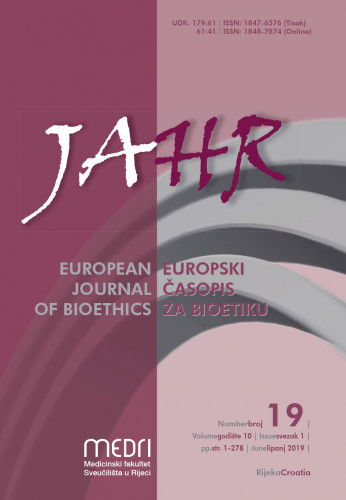Should children be allowed to express their opinion in regards to medical treatment or experiment? In the past, the practice seemed to assume that children are not matured enough to make decision affecting their well-being, their guardians therefore are given the power to decide for them. In this article the author will argue that this practice should be changed and children should be allowed to get involved. The author quoted findings of Grootens-Wiegers P., Hein I. M., van den Broek J. M. and de Vires M. C. in regards to children’s ability from developmental and neuroscientific aspects that children actually start knowing their like, dislike, good and bad… from a very young age. Though these processes are gradual, the finding tells us that children are not as immature as we used to think. The author thus argues that children’s autonomy must be respected in some way when medical decision is to be made. At least, they must be told what options are available and seek their opinion.; Treba li djeci dozvoliti da izraze svoje mišljenje o liječenju ili sudjelovanju u kliničkom ispitivanju? U prošlosti se pretpostavljalo da djeca nisu dovoljno zrela da donose odluke koje utječu na njihovu dobrobit, stoga se skrbnicima davala moć odlučivanja umjesto njih. Autor će tvrditi da bi se ta praksa trebala promijeniti i da bi djeci trebalo omogućiti da se uključe. Autor navodi P. Grootens-Wiegersova, I. M. Heinova, J. M. van den Broekova i M. C. de Viresova istraživanja u pogledu sposobnosti djece, od razvojnih i neuroznanstvenih aspekata da djeca zapravo počinju spoznavati ono što im se sviđa ili ne sviđa, dobro i loše... od vrlo rane dobi. Iako su ti procesi postepeni, istraživanje nam govori da djeca nisu tako nezrela kao što smo prije mislili. Autor, stoga, tvrdi da se dječja autonomija mora na neki način poštovati kada se donosi medicinska odluka. Barem im se mora reći koje su opcije dostupne i tražiti njihovo mišljenje.
Sažetak

 JAHR : europski časopis za bioetiku = European journal of bioethics : 10,19(2019) / glavni urednik, editor-in-chief Igor Eterović.
JAHR : europski časopis za bioetiku = European journal of bioethics : 10,19(2019) / glavni urednik, editor-in-chief Igor Eterović.